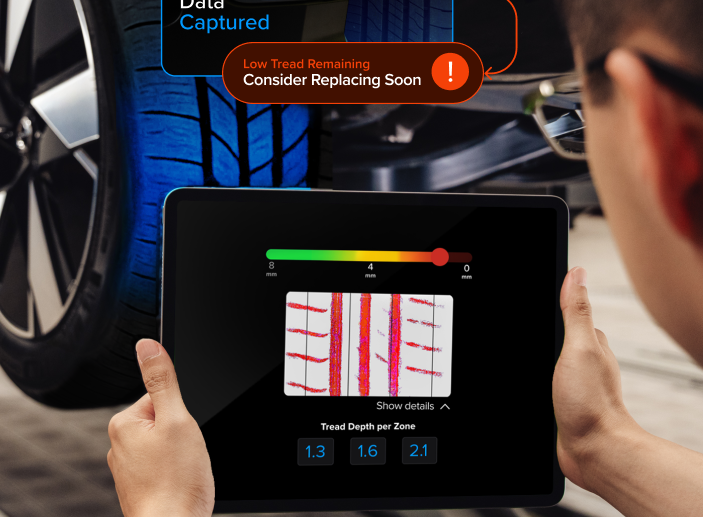
Inspiring Machine Learning Projects: Infervision, Deepway & Eightfold
Discover inspiring machine learning projects: Infervision's stroke detector, deepWay's support for vision-impaired & Eightfold's job market.
The ‘godfathers of AI’ – Yoshua Bengio, Geoffrey Hinton, and Yann LeCun – have won the Turing Award, a $1 million prize otherwise known as the “Nobel Prize of computing”. It’s difficult to think where we would be today if it wasn’t for these pioneers; anyone working in machine learning & AI today is standing on the shoulders of these giants.
At Anyline, we’re inspired every day by how deep learning, machine learning & AI are transforming the world around us. To mark this occasion, we are highlighting 3 of our fellow machine learning innovators who are giving their best to make our lives better & smarter in the future.
Deepway: Navigation for Vision-Impaired People
From braille to screen-reading, technology gives visually impaired people the tools to participate fully in almost all aspects of life. But when it comes to getting from A to B independently, options are more limited. Guide dogs are common in many countries around the world but are very expensive. According to leading charities, the price of training a pup into a licensed guide dog starts at around $40,000. This puts them out of reach of millions of vision-impaired people around the world.
But one student in India might have a solution. Satinder Singh has developed a tool called deepWay, a navigation system which uses convolutional neural networks to guide its user through the street on their own. When the system detects the side of the pavement, a road-sign, or another person approaching, it alerts the user with an audio signal and gives directions by touching the side of their face with a small panel.
Satinder admits that for now, his prototype is “not the most elegant”, but his invention has huge potential to become a safe and cost-effective solution for blind and visually impaired people in the near future.
Infervision: Use AI to Detect Strokes
Strokes happen when the blood supply to the brain is blocked. Although there are ways to reduce the risks, they can happen to anyone at any time of their life, and when it does, it’s vital to act FAST.
Until now, there has been no reliable method of measuring the amount of blood loss before a patient reaches medical care, leaving doctors to make an estimate using no more than a mathematical formula.
By training their algorithms with over 100,000 annotated medical image scans, Infervision is developing a faster and more accurate system to detect strokes when they happen. Every second counts when a stroke happens, so faster diagnoses could make the difference between life and death.
Infervision’s stroke-detection technology is already being piloted in 4 hospitals in China, so with luck, it will soon be saving lives and transforming stroke diagnosis and treatment around the world.
Eightfold: Fair & AI-Enhanced Job Markets
There is growing concern that AI can perpetuate the biases and prejudices of people. This can happen for different reasons, from insufficient data to developers choosing key attributes that implicitly discriminate against certain people. Even industry giants can be affected: MIT Technology Review reported that Amazon’ had to abandon an internal recruiting tool that turned out to be biased against female candidates.
Ashutosh Garg, the CEO of Eightfold sees things differently. Rather than discriminating, he thinks AI could drive us into a more meritocratic age instead, an age in which your job prospects are decided by your ability to learn new things, rather than your connections.
That’s why Eightfold is developing machine learning to help find the best people for the job tomorrow, and not just for the task at hand right now. Ashutosh believes this is the only way to manage talent today that makes sense – the days of the lifelong job are over; people and companies need to be adapting and keep learning every day to stay ahead of the curve.
Ashutosh & Eightfold also want to use machine learning & AI to anonymize all the data that often leads to biased hiring decisions, such as age, gender, ethnicity, etc. and focus on what is relevant to the job on offer instead.

